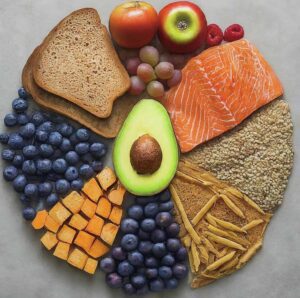Here I am: you asked me on IG to address the slowing metabolism myth, here we go.

The origin of the myth
When you reach your thirties (of the terrifying forties) it’s common to hear, from people of the same age, these complaints:
I don’t know how but I gained so much weight recently.
I tried everything but I can’t lose my belly fat.
Usually followed by the defeated acceptance that “it must be my metabolism slowing down”.
While age-related weight gain is common, is it solely due to a slowing metabolism?
You’ve surely encountered perpetuated myths, spread by word-of-mouth back in the offline days that are now amplified on social media.
These myths often lack scientific foundation, relying on anecdotes and unrealistic promises.
They exploit our fears and anxieties with quick fixes and unrealistic claims, all packaged for online engagement and sales.

Debunking the Myth with Research
A 2021 study published on Science challenged the widely held belief of a steady metabolic decline throughout adulthood.
This large-scale study found that metabolism remains relatively stable from ages 20 to 60, with a gradual decline of less than 1% per year after that [source].
While individual variations exist, the main point stands: your metabolism generally remains stable for most of your life under normal circumstances.

Beyond the Myth: the bigger picture
However, focusing solely on metabolism paints an incomplete picture. While the study debunks the dramatic slowdown myth, it’s important to acknowledge other contributing factors that can influence your metabolic rate along with age.

1. Your activity level
Your life often become more sedentary with age. Sitting for extended periods at work staring at a screen, long commutes by car or public transportation, binge watching the last show on Netflix, all contribute to decreased physical activity.
This gradual shift from active to inactive significantly impacts overall metabolism [source]. Conversely, maintaining physical activity, especially strength training to build and maintain muscle mass, can help mitigate the decline in Basal Metabolic Rate (BMR) [source].

2. Muscle Mass
As part of the natural aging process, we tend to lose muscle mass, a metabolically active tissue. While gradual muscle loss is normal with aging, the less muscle mass we hold (I’m simplifying here!), the slower the BMR [source] will be. Since muscles slightly burn more calories, less muscle mass translates to fewer calories burned over time. Combine this with the same or even increased calorie intake, and you end up with increased fat storage.

3. Individual Differences
Genetics and hormonal changes can also influence the rate of metabolic decline. Men generally have a higher BMR due to having, on average, larger muscle mass [source] so they tend to slightly burn more calories.

4. Level of Tiredness
A reduction in sleep and increased tiredness during the day can also lead to poorer choices when it comes to your nutrition. This study [source] shows that sleep deprivation can increase cravings for snacks and highly palatable/poor in nutrients foods.
While moderate and occasional snacks are not necessarily bad (If you’re asking yourself, can you have that cake? The answer is here) and actually can be good for your overall mental health and fat loss journey consistency, excessive snacking and caloric surplus will lead to increased fat gains.

The Point: Inactivity, Not Age is the Culprit
While aging does contribute slightly to a decline in metabolism, it’s not the main culprit behind the weight gain we often experience later in life.
The real villain is the gradual shift from an active lifestyle to a more sedentary one, often accompanied by unchanged eating habits.
Think about it: you can’t stop the aging process (no matter what anti-aging creams claim). However, you do have control over your choices (more on it here), and by making positive changes, you can significantly improve your overall well-being and mitigate the decline in your metabolism.

Taking Charge of Your Metabolism
Despite the complex interplay of factors, the good news is that you can take steps to promote a healthy metabolism throughout your life!
1. Exercise Regularly
Engage in both strength training and aerobic activity to build and maintain muscle mass and improve overall health, especially cardiovascular health. Choose activities you enjoy and want to do, but remember that strength training provides an extra challenge for your muscles, leading to better results over time for your health and longevity.
Don’t know where to start from? Check these articles to help you out:

2. Improve Your Nutrition Where Necessary
A balanced diet rich in fruits, vegetables, lean proteins, and whole grains provides all the essential nutrients your body needs to thrive. Try adding protein at every meal to start from, then increase veggies and work on the carbs. One little change at the time for the long run win.

3. Take Care of Stress
Chronic stress can negatively affect metabolism and lead to dietary over-consumption of especially extra-palatable foods that can increase visceral fat and weight gain [source] .
Easier said than done but actively working to manage your stress can help keeping extra calories away.
Everyone has different ways to reduce stress. In my case I clean up and tidy my apartment while listening to music and singing or use the gym to release the excessive pent-up stress-derived energy.

Once you understand these facts and actively work bit by bit to take control of what you can control (more here), you can empower yourself to maintain a healthy metabolism and promote healthy aging.
